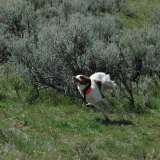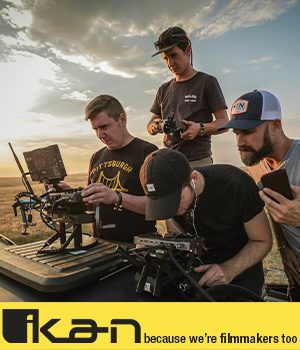- Forum
- General Discussion | Introductions | Off Topic Forum
- Photography General Discussion
- Turning on and off Camera?
Turning on and off Camera?
-
 Topic Author
Topic Author
- Dana Leeson
- Snapobsessed
-
- Canon 7D
- Followers: 114
- Posts: 319
-
Points:
2749
Post #312307
1. Changing lens
2. Changing battery
3. Changing memory card
4. Adding or removing off camera flash
I have always shut my camera down for all of these, but was told yesterday by another photographer that you didn't need too. I'm just getting more opinions on this as I don't want to damage my camera.
-

- garyrhook
- Oh Wise One
-
- Nikon D850, Nikon D750, Panasonic G7K
- Followers: 912
- Posts: 11103
-
Points:
67681
Post #312311
2) Read the manual
3) Read the manual
4) Read the manual
Honestly, there's no single answer for any of these, as it depends upon what the manufacturer has allowed for. For most of them the answer is no, it's not a problem (especially the flash unit), but you never want to remove the memory card while it's being written to.
Frankly, the other photographer shouldn't express unfounded opinions. Because it depends.
-

- Shadowfixer1
- Photo Elder
-
- Olympus OMD E-M1 MKII
- Followers: 1350
- Posts: 5559
-
Points:
73710
Post #312317
Post #312439
-
 Topic Author
Topic Author
- Dana Leeson
- Snapobsessed
-
- Canon 7D
- Followers: 114
- Posts: 319
-
Points:
2749
Post #312457
garyrhook wrote: 1) Read the manual
2) Read the manual
3) Read the manual
4) Read the manual
Honestly, there's no single answer for any of these, as it depends upon what the manufacturer has allowed for. For most of them the answer is no, it's not a problem (especially the flash unit), but you never want to remove the memory card while it's being written to.
Frankly, the other photographer shouldn't express unfounded opinions. Because it depends.
I have read my manual, that's why I have done it the way I have. However I find it odd that I have come across a few photographers who say it doesn't matter. Because of this, I ask.
-

- StephanieW
- Photography Hooked
-
- Canon 30D
- Followers: 11
- Posts: 852
-
Points:
0
Post #312467
-

- effron
- Newbie
- Followers: 1623
-
Points:
129640
Post #312477
Why so serious?
-

- Don Fischer
- Photography Hooked
-
- Nikon D5000
- Followers: 341
- Posts: 989
-
Points:
2442
Post #312479
-

- Jim Photo
- The Lounger
- Nikon D700
- Followers: 155
- Posts: 1427
-
Points:
3555
-

- Stealthy Ninja
- Moderator
-
- Fuji X stuff and a 1DsIII for some reason
- Followers: 982
- Posts: 16300
-
Points:
6837
Post #312577
IF you want to turn it off, turn it off. The risk is yours.
-

- Stealthy Ninja
- Moderator
-
- Fuji X stuff and a 1DsIII for some reason
- Followers: 982
- Posts: 16300
-
Points:
6837
Post #312579
effron wrote: The big issue could be dust attraction, as your sensor is energized when the camera is on. I try to shut my camera down prior the changing a lens, but when I forget I don't lose sleep......
I looked it up once and basically the "sensor attracting dust" thing is a myth or really doesn't make any difference.
-
 Topic Author
Topic Author
- Dana Leeson
- Snapobsessed
-
- Canon 7D
- Followers: 114
- Posts: 319
-
Points:
2749
Post #313015
-

- Allen D
- Snapobsessed
-
- Nikon D500 and Panasonic GH5
- Followers: 54
- Posts: 274
-
Points:
1155
- Forum
- General Discussion | Introductions | Off Topic Forum
- Photography General Discussion
- Turning on and off Camera?
Latest Reviews
The Panasonic G9 II is a 25.2-megapixel micro four thirds camera with numerous features that make it punch out of its weight class, like 779 AF points, 5.8K video, and weather sealing.
The Fujifilm XT5 is a 40MP mirrorless camera capable of 6.2K video at 30p. With those specs, it’s an ideal choice for photographers needing a camera to pull double duty for imaging and video.
The Canon EOS R100 is an entry-level mirrorless camera introduced in 2023. But just because it’s an entry-level camera doesn’t mean it’s a bare-bones camera. Find out why in this review!
Nikon’s retro-looking Nikon Zfc is anything but retro. Under its classic body is a host of features and amenities that make it a worthwhile compact mirrorless camera for 2024.
Forum Top Posters
-
1TCav 7 posts
-
2Ruby Grace 4 posts
-
3Garbo 3 posts
-
4Street Shark 3 posts
-
5amirahusse... 2 posts
-
6CharleyL 2 posts
-
7Carter Gledhill 2 posts
-
8Sassy Girl 2 posts
-
9Chester Foster 2 posts
-
10Colorado Mike 2 posts
Latest Articles
The Panasonic G9 II is a 25.2-megapixel micro four thirds camera with numerous features that make it punch out of its weight class, like 779 AF points, 5.8K video, and weather sealing.
Cinematic photography is an interesting genre that combines photographic and videographic skills along with effective storytelling techniques. The result? Highly impactful images!
Newborn photography requires skill, the right gear, and a lot of patience. This beginner’s guide discusses critical topics that will help you be more prepared for before, during, and after the shoot.
To fill the frame means to expand the footprint of the subject in your shot. Get in close, zoom in, crop the image, or use other techniques to bring the subject to the forefront.
With these simple yet effective beginner photography tips, you can avoid some of the common mistakes beginners make and get improved results with your images.
Urban photography is a genre showcasing features in urban settings. You can photograph people, architecture, mass transit, and many other subjects. Learn how to do so in this guide!
The Nikon D850 might be an older DSLR, but it was ahead of its time when it debuted in 2017. That means it still has plenty of firepower to compete with today’s powerful mirrorless cameras.
The best beginner camera isn’t the same for everyone. That means having choice is of the utmost importance. In this guide, explore five excellent beginner camera options for 2024 and beyond.
















